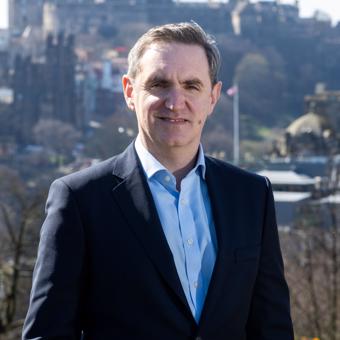In this in-depth interview we chat to Swati Paul about her diverse role at London Luton Airport
Swati, can you please quickly summarise your education and career path to date?
I spent the early part of my career working in the City, in energy and infrastructure. This was a heady mix of complex deals and international travel – really exciting for a junior lawyer. I had the privilege of working in some great firms (Denton’s, CMS and Clifford Chance). I worked for amazing clients: governments, corporates and regulators. Initially, it was a steep learning curve, but really interesting. The work included advising on energy, projects, M&A and implementing energy regulatory regimes, internationally. At that time, I was so focused on progressing through the law firm hierarchy, I had no idea that I would end up in-house or even what this would entail. When I did eventually go in-house, I realised that my private practice experience had been rigorous and invaluable. In-house, I have worked at a regulator, an international manufacturing company and also at Transport for London. These roles gave me the essential grounding and provided me with the skill-set to do my current role. I was recently recognised as a “Hot 100” outstanding lawyer for 2019 by “The Lawyer” magazine. This is in addition to previously winning a Law Society Excellence award.
What kind of work do you undertake at London Luton Airport?
I am responsible for all the legal work at the airport. I am also responsible for insurance, corporate governance and key compliance. A junior lawyer and an insurance executive report in to me.
What does this look like on a day to day basis?
Primarily, my work comes from working with the CEO and executive team on advising on and facilitating deals. I also manage the "business as usual" contracts and procurements. The current range of matters I am working on go from commercial deals, capital projects, disputes and governance to considering the impacts of strategic planning issues. A key part of being a GC, is the ability to step into any legal matter, whether you are trained in that field or not, and have a view. Daunting, initially – but essential!
What’s the most enjoyable thing about your current role?
The sheer diversity and being involved in the strategic decision making of the airport. I sit on both the board and the executive management team and as such, I am enmeshed in the day to day management of the business. I realise this is a privileged position, as not all lawyers have this level of access. It has honed my legal skills and exposed me to the complex, multifaceted decisions taking place at senior levels. In addition, it has helped me to understand how to navigate the political map of the local management, international shareholders and a council freeholder thrown into the mix!
What first attracted you to law?
A father who refused to support any university course that did not lead to the ability to earn a living! In addition, I knew that a career in law could be as diverse as the law itself.
You started your career at a large firm so what made you switch in-house?
The hours and travel required were, for me, incompatible with having a family.
What was the biggest surprise?
The biggest revelation was that I could actually go home in the evenings and had the autonomy to manage my workload! When I worked in private practice the work was cyclical – you were either extremely busy or not. In-house, the work is more intense as you are consistently busy. There is always something to do as you are part of the business, driving it forward. However, the welcome change was no time recording. I've found the in-house environment to be much more collaborative, as everyone is working for a common goal. In my in-house career, I have worked for large teams (of about 100 lawyers) and small ones. When I started at the airport there was just me. There is now another junior lawyer and an insurance professional reports in to me. However, being in a small in-house team tests you as a lawyer as there is no-one to bounce things off and you will need to be comfortable with your advice.
What advice would you give to anyone thinking of working in-house?
Being in-house is on the sharp edge of practice. There are no disclaimers or distance between you and the client. You are part of the business and as such are involved from the beginning of each transaction and therefore, depending on your level, you are able to shape the transaction. Clients want pragmatic, easily accessible advice. Not all lawyers can do this! A previous boss (the CEO), would call me and simply ask whether we could go ahead with a transaction: Yes or no? This would even apply to transactions of extremely high value (£100 million+).
What four words best sum you up as a lawyer?
Pragmatic, commercial, precise and personable.
Do you have a motto that you live by in business?
I work in a highly commercial business with a suite of stakeholders all of whom have different agendas. The situations I face do not always have a clear answer, but I am compelled to "do the right thing".











